
“A Piece of My Mind”
 June 2025 Newsletter
June 2025 Newsletter
Advancing Christian Faith and Values,
Defending Religious Liberty for All,
Supporting Civility and the Common Good
through Preaching, Teaching, Writing, Activism and Reasoned Conversations
www.donaldshoemakerministries.com
Fifth in a series on the Ten Commandments by Donald Shoemaker
The Fourth Commandment
“Remember the Sabbath day by keeping it holy. Six days you shall labor and do all your work, but the seventh day is a sabbath to the Lord your God. On it you shall not do any work, neither you, nor your son or daughter, nor your male or female servant, nor your animals, nor any foreigner residing in your towns. For in six days the Lord made the heavens and the earth, the sea, and all that is in them, but he rested on the seventh day. Therefore the Lord blessed the Sabbath day and made it holy.”
– Exodus 20:8-11 (& Deuteronomy 5:12-14)

#1 – In one word, how do we obey the 4th Commandment?
This commandment is the longest of the ten. The 47 words for this command in Hebrew distill down to one: “Rest!”
There is a spiritual lesson here too—a second sense in which we obey the 4th Commandment. We by faith embrace the Gospel of Jesus and enter “a Sabbath-rest [from our works] for the people of God” (Hebrews 4:1-11). This fits “we are saved by faith and not by works” as taught in Ephesians 2:8-9.
#2 – How did the Mosaic Law ground this commandment with authority?
In Genesis 2 the day of rest is grounded in God’s activity during “creation week” (Genesis 1). God labored six days in his creation activity and then rested. Because he did so, he blessed the seventh day and made it holy. The command, in essence, says, “God took the 7th day off and we should too.”
That this teaching is part of God’s creative activity makes a strong argument for it being for all humanity and not just for Israel. It is a “creation ordinance.”
#3 – What are the broader implications of this commandment?
The benefit of rest from the routines of labor applied not only to the Israelite worker who hears it. It applied also to his:
• Sons and daughters
• Male and female slaves
• Beasts of burden
• Neighbors who were immigrants
This commandment creates concern for how others ought to be treated. Whatever rest is deserved by the laborer is also deserved by those under his authority. One’s slaves are to be treated as is right and fair (Colossians 4:1); an Israelite must treat an immigrant in ways that show he remembers what it was like to be an oppressed immigrant in Egypt; righteous people care for the needs of their animals (Proverbs 12:10). All of this has more implications behind it than we often give it. What the commandment teaches about the Sabbath should serve as a launching pad for ongoing thinking and decisions about how we should treat others as individuals and as a society.
#4 – As “Lord of the Sabbath,” how did Jesus live it and explain it?
Jesus did not come to abolish the law, but to fulfill it (Matthew 5:17). That is, he personified it in his own life, he unfolded its deeper meaning by what he taught in word and example, he opposed legalism that contradicted what it claimed to uphold and imposed “the letter of the law” but not its “spirit.”
As “Lord of the Sabbath” (Luke 6:5), he defended his disciples when they satisfied their hunger by “work” (plucking grain) on the Sabbath by quoting scriptures that paralleled what the disciples did (Matthew 12:3-5). He drained Sabbath-keeping of burdensome legalism by declaring, “the Sabbath was made for man and not man for the Sabbath” (Mark 2:27).
He healed on the Sabbath, declaring that it is right to do good on the day God had blessed (Luke 6:6-11). He declared that people at the very least deserve the same benevolent care we would show a sheep in distress on the Sabbath, arguing from the lesser to the greater (“People have more value than sheep” – Matthew 12:11-12).
By the time Jesus lived on earth a new feature in Israel’s life had developed which was unknown to the Old Testament—SYNAGOGUES had come into existence to meet the spiritual needs of Jewish people unable to worship at the temple in Jerusalem. There the words of the law and prophets would be read and taught, psalms sung, and prayer offered. We have this marvelous report of what Jesus did while in Nazareth, the town of his upbringing (Luke 4:16): “On the Sabbath day he went into the synagogue as was his custom.” Today we might say, “From childhood Jesus strongly developed the habit of going to church every week!” Synagogues throughout the empire were weekly gathering points for followers of the Jewish faith. The Book of Acts affirms this and early Christian evangelists accommodated themselves to it. Read the accounts: Acts 13:14, 42, 44; 16:13; 17:2; 18:4.
#5 – How has the commandment been applied over centuries of time?
Briefly and basically there have been four positions on obeying this command:
1) Christians should follow the Jewish pattern and observe the 7th day as a Sabbath from sundown Friday to sundown Saturday.
2) The “Christian Sabbath” (Sunday) is now, by God’s will, the day to which the 4th Commandment applies. Emphasis is put on worship and service as well as rest. Advocates of “Sunday sabbatarianism” have differing opinions over how and to what extent the Christian Sabbath is subject to rules. For one of the more restrictive examples, see the appendix.
3) By God’s will, Christians should observe Sunday as “The Lord’s Day”. It is a feature of God’s New Creation. Jesus arose on this day; the Holy Spirit came at Pentecost on this day; Gentile Christians more and more came to worship and hear the Word on this day (Acts 20:7).
4) As a matter of Christian liberty and not by divine command, many Christians have set Sunday aside as the day for worship, service and rest. They see Paul’s words about day observance as allowing this liberty as taught in Romans 14:5-6 – “One man considers one day more sacred than another; another man considers every day alike. Each one should be fully convinced in his own mind. He who regards one day as special, does so to the Lord.”
#6 – Conclusions on how we can “Do Sabbath” today
My sentiments are with #4 above, but not dogmatically so. I’m not strongly impressed with proof-texts making Sunday “The Lord’s Day.” It’s not clear to me that Revelation 1:10 proves John was “in the Spirit” on a Sunday. And the offerings mentioned in 1 Corinthians 16:1-2 are to be set aside on Sundays by each wage earner in a private way (like in a “cookie jar”), not through a church offering. Besides, this was a temporary arrangement, as the context shows.
Martin Luther wisely saw the commandment’s fulfillment in our fear and love for God, which leads us to hold his Word sacred and gladly hear and learn from it. [Small Catechism, “The Ten Commandments”]
I agree with John Calvin, who supported (1) establishing a special day for assembling to hear God’s word and worship and (2) setting aside one day in seven for relaxation from labor for self and for others under one’s authority. [Institutes 2.8.28; Instructions in Faith (1537), Sermons on the Ten Commandments]
I yearn for a culture that is sensitive to, and respectful of, the desire of (most) Christians to gather on Sundays for worship and the Word. I can remember when many secular communities were sensitive to avoid scheduling activities that conflicted with the times set aside for worship.
I call on churches and families to resist the secularization of Sundays for public events and sports. I call on churches to bear witness to the sacredness of a “designated day in seven” and for families to sacrifice a sport if necessary.
The erosion of respect for Sunday as a dedicated day for worship is certainly a leading reasons why loyalty to the church, hence to Christ, has diminished (we cannot separate Christ from his body). No one is being coerced to attend a religious gathering; nor should anyone be made to “pay a cultural price” for doing so. Isn’t that in accord with our First Amendment?
Hebrews 10:24-25 is as relevant today as when written (I view a church gatherings as the most likely place where “spurring one another on toward love and good deeds” will occur): “And let us consider how we may spur one another on toward love and good deeds, not giving up meeting together, as some are in the habit of doing, but encouraging one another—and all the more as you see the Day approaching.”
“Doing Sabbath” (at least as well as we know how) will move us toward several new freedoms and masteries: (1) freedom from the love of money and what it can provide; (2) freedom from the judgment of others in matters where we have a right to make our own decisions; (3) freedom to engage in a vocation without being dominated by it; (4) freedom from the tyranny of time so we can master our use of time—under Jesus’ lordship over all the above.
Finally, let’s be cautious on how to apply the Sabbath command in light of the fact that this is the only command of the ten not taught prescriptively in the N.T.
Note: As I studied many sources for this relatively brief look at the 4th Commandment, I’m amazed and humbled (but never tell others how humble you are!) by how little I’m able to treat this topic as it deserves. I haven’t even touched on biblical teaching about Sabbaths other than the weekly one that Israel was to observe, nor the Sabbaths we are definitely not to observe (Colossians 2:16-19). Nor have I developed the implications of Sabbath-keeping on how we treat God’s creation. So let my brief words here spur both you and me on to understanding biblical teaching on the Sabbath better.
For further study I recommend The Ten Commandments by Kevin DeYoung, chapter 4, and The Law of Perfect Freedom by Michael Horton, chapter 5.
 “We hold that the seven day working week is abnormal, and we hold that one day of rest in seven should be provided by law.”
“We hold that the seven day working week is abnormal, and we hold that one day of rest in seven should be provided by law.”
– President Teddy Roosevelt
Note: In this time of change in the Roman Catholic papacy, I wish to share an editorial I wrote upon the passing of Pope John Paul II in 2005.
 One Evangelical’s Gratitude for John Paul II
One Evangelical’s Gratitude for John Paul II
Guest Editorial by Donald P. Shoemaker
Press-Telegram, Long Beach, CA, April 9, 2005
In the conservative Protestant environment of my upbringing just about anything that came from Rome was suspicious. The Roman Catholic Church was, so we were taught, the “scarlet harlot” of the Book of Revelation, chapter 17—clearly identified by her vestments of purple and scarlet, her gold, silver and jewels, and the golden chalice in her hand. She was destined to align herself with the Antichrist, the Devil’s ruler of the End Times, until he tired of her domination and tossed her aside and ruled supreme until his defeat by the King of kings.
To us Catholicism was as Winston Churchill characterized the Kremlin, “a riddle wrapped in a mystery inside an enigma.” Church rituals with their beads and vestments and Latin were a world away from our simple message and revivalist enthusiasm.
A more historically informed approach to biblical interpretation has led to a better look at the Book of Revelation. But what really affected our thought was a courageous and humble man who came out of nowhere to become John Paul II.
John Paul was a human face with which we could easily connect, not a lofty anachronism from the Middle Ages. Coming through the crucible of suffering under two totalitarian systems and being willing to return to Poland to suffer with his people if events so summoned him, he personified the call of Jesus to take up the cross and follow Him.
We saw him as a powerful spiritual leader who in God’s providence, though not single-handedly, brought on the collapse of the Communist evil in Eastern Europe. Though Joseph Stalin mocked the pope in 1935 with “How many divisions has he?” we saw in John Paul the spiritual power of the cross and the Gospel at work emancipating human souls from misery.
We appreciated the unabashed orthodoxy that John Paul represented. His resolute support of pro-life issues resonated with us (opposition to abortion on demand is the one moral position that unites Evangelical Protestants whether their politics are right, left or center).
Significant issues remain on both sides. Some conservative denominations still pronounce that the papacy is the Antichrist. Obsolete attitudes and teachings are readily found amongst Evangelicals, as if the Second Vatican Council never happened.
Pragmatists that we are, Evangelicals cannot see any compelling reason to withhold the option of marriage from priests and we can give many reasons for this option. We are solidly in the Reformation commitment to the authority of Scripture alone, not Scripture and Tradition. We don’t like to hear Cardinal Joseph Ratzinger say that our communities of the faithful are not truly “the Church.”
We see true “apostolic succession” as fidelity to apostolic doctrine more than as a continuity of bishops. We are not comfortable with the veneration rendered to the Virgin Mary, though we are chastened that we have not honored the spirit of her words in The Magnificat, “All generations shall call me blessed,” for she should indeed be our model of devotion and discipleship.
What would many Evangelical Protestants hope to see emerge from the upcoming Conclave? I speak for myself, but I think I have the pulse of much of our movement.
We want to see a pope emerge who would forge a strong confessional relationship with theologically conservative Protestants. We are one in heart with Catholics who can confess the Ecumenical Creeds without crossing their fingers behind their backs.
We would delight in a pope who comes from the Southern Hemisphere, where Christianity is vibrant and growing and orthodox. We want this to be the wave of the future.
Finally, we want to see a pope who continues John Paul’s ministries of being a shepherd to his people and a prophetic voice to the world. News analysis presently abounds with bobbing heads complaining that John Paul did not bring strong administrative skills to the Vatican and they hope the new pope will.
God forbid! In the earliest days of Christian history the infant church carefully and wisely separated the apostolic role of teaching and prayer from the administrative role that others should do (chapter six of the Book of Acts).
I dread to ponder the outcome had John Paul devoted himself to management instead of pastoral and prophetic ministry. We might have the Vatican well oiled and Eastern Europe still in chains.
The Spirit of Pentecost—Uniter or Divider?
A Message for Pentecost Sunday, June 8
Baker Book House has a legacy of producing excellent books by scholars across the Evangelical spectrum. I look at my library shelves and see Millard Erickson’s Christian Theology as a stellar example.
Sadly, BBH in one instance is failing to reflect its broad Evangelical perspective. It is producing the Word and Spirit Commentary on the New Testament. These books are written by “biblical scholars from the Spirit-filled tradition” and “aimed at Christians who identify as Spirit-filled.”
My problem is this: no segment of Christianity should lay special claim to being “Spirit-filled.” Yet this publisher declares the Pentecostal/charismatic movement to be the “spirit-filled” tradition within Evangelicalism. Are Erickson and other writers of Christ-centered theology “not Spirit-filled”?
The Holy Spirit—the Spirit who filled the waiting disciples at Pentecost—is the Spirit who unites all disciples of Jesus, not the Spirit who singles out some disciples of Jesus for special mention as the truly anointed spiritual elite. And in the New Testament the “Spirit-filled” don’t go around tooting their own horns.
“For in one Spirit we were all baptized into one body—Jews or Greeks, slaves or free, [Pentecostals or not; Charismatics or not]—and all were made to drink of one Spirit” – 1 Corinthians 12:13 ESV [bracketed words obviously mine!].
Spiritual gifts are greatly varied. No particular gift separates those Christians who “got it” from those who “don’t got it.” See 1 Corinthians 12:27-31.
“There is one body and one Spirit” and we are called to “maintain the unity of the Spirit in the bond of peace” (Ephesians 4:3-6). BBH is not “maintaining.”
The whole fullness of deity dwells bodily in Jesus and we are complete in him (Colossians 2:9-10). “Fullness” is in Jesus, not in “Jesus plus something more.”
Let’s be true observers of Pentecost by confessing the one Spirit who came and unites all who believe in Christ. “I believe in the Holy Spirit, the giver of life…who with the Father and the Son is worshipped and glorified.” – The Nicene Creed
[Note: the Pentecostal movement is memorable to me. At age 9, I knelt at the “altar” of a Pentecostal church to give my life to Jesus. My first sermon at age 18 was in an Assembly of God church. I identified with this movement for five years thereafter.]
A Timely “Message of the Month”
Communion at Weddings? Think Again!
By Donald Shoemaker
June is known for its weddings. So I think it’s timely as June approaches to examine a practice that some wish to do at their wedding. Over my fifty-five year career as a pastor I’ve seen a lot of changes in wedding practices. One of these is introducing Communion (the Eucharist or the partaking of the “Bread” and the “Cup”) into the ceremony.
Specifically, the bride and groom partake of the Bread and Cup as an expression of their marital union in Christ and faithfulness to Him. While these commitments are wonderful, there is a need to explore the appropriateness of using one of the church’s ordinances (I prefer to say “sacraments”) to depict them. In this essay, I would like to give my reasons why I do not condone this practice as it is usually done in weddings.
The basic question is this: Is it biblically appropriate for the bride and groom to partake of Communion during their wedding ceremony (a worship occasion, indeed!) while others (Christians or not) look on and do not participate? I want to make it clear that I am not demanding a biblical precedent for this practice as a prerequisite for allowing it. Indeed, there is no biblical precedent for church weddings, period! Absent a biblical prohibition, many might think such a Communion practice could be allowed as an exercise in Christian liberty. But I think several factors point to disallowing it.
First and foremost, the example set by our Lord and His disciples points to participation by all followers of Christ who are in attendance.
When Jesus instituted Communion everyone present partook of the elements (Mark 14:23; Luke 22:19-20). In fact, Jesus explicitly commanded all to partake. He “took a cup and gave thanks, and gave it to them, saying, ‘Drink from it, all of you.’” (Matthew 26:27). He didn’t say, “Drink, a couple of you.”
While we should not demand exact duplication of every small detail when Jesus instituted “Communion,” certain details are germane to the practice and worthy to retain. Thus, we don’t demand that the elements be Passover bread and wine. But “bread and the fruit of the vine,” as signs taken from life’s necessities, are appropriately signs of redemption through Christ’s body and blood rather than, say, donuts and coffee. The disciples partook of Communion as representatives of the church, which would soon begin, and they stand for the whole company of the Faithful. Their universal partaking is appropriately seen as a pattern for the church.
Second, the theology of Communion (what it means or intends to signify) is explicitly clear in the New Testament. Communion is an expression of the unity of the People of God as they all partake of the Bread and Cup. Partaking of the Bread is sharing in Christ’s body; partaking of the Cup is sharing in Christ’s blood (I Corinthians 10:16). “All partaking of one bread” is a sign that we who are many are one body. We should be “diligent to preserve the unity of the Spirit” on this truth (I Corinthians 10:17; Ephesians 4:3-4).
One way to be diligent is to be sure that the Communion elements are available to all the People of God who are present at a worship occasion. We simply must not partake of Communion in ways, which fail to illustrate (or worse, which illustrate contrary to) the unity of the People of God. To do so is to twist the ceremony.
Third, a “personal service of Communion” with other believers watching takes unto itself a mysterious sacramentalism and surrogatism that is contrary to the Protestant Reformation spirit (one might read John Calvin’s comments on the Lord’s Supper in the Institutes, Book 4, Chapter 17, Sections 38, 39 & 43). While believers can observe a baptism, there is no biblical record of believers watching a Communion while not partaking of it themselves (a decision by an observer to abstain from Communion for spiritual reasons is not relevant here).
Fourth, to observe Communion for other than its biblical signification is to lower Communion from a divinely-ordained sacrament to a church practice that has its origin in the mind of man, like lighting a Unity Candle or exchanging rings. But Communion originated in the mind of God. And it is simply not a symbol given by the Lord to His church to enable a nuptial couple to express their “oneness in Christ.” Let the candles and the rings say that. In my opinion, it’s no accident that the practice of Communion at weddings is more prevalent among groups that have a theologically weak view of Communion in the first place.
When it comes to “church polity” (how a church should run itself), Presbyterian church order is among the more thoughtful to be found. The Presbyterian Book of Order expresses itself on the proper observance of Communion at weddings:
Celebration of the Lord’s Supper at the marriage service requires the approval of the session [the local church elders], and care shall be taken that the invitation to the Table is extended to all baptized present.
(Book of Order of the Presbyterian Church [USA], “Marriage”, W-4. 9003; 1990)
Good thinking!
Having Communion at a wedding is not a problem in itself so long as all believers present are offered the opportunity to partake. I officiated at one such occasion. The diplomatic problem is, how do we explain the biblical significance of the Communion and request that it be observed only by Christians who are present? Perhaps the best solution would be to announce (after carefully explaining its meaning) that the Communion is open to all who believe in Christ as Savior and Lord*, and then those who wish to partake may come forward to do so.
I recommend that churches have the policy that “Communion” may be observed at weddings provided that approval is received from the church’s governing board and the invitation to partake is extended to all believers in Christ who are in attendance. To do otherwise is, in my opinion, to diminish the significance of Communion from the high place where Jesus and the Apostles placed it.
* Some may limit Communion to baptized Christians. I don’t discuss that here.
www.donaldshoemakerministries.com
Don was a member of the clergy in the Long Beach, California area from 1970 to 2024. He has served as Pastor Emeritus of Grace Community Church of Seal Beach (where he was senior pastor 1984-2012) and as Senior Chaplain of the Seal Beach Police Department (2001-2024). He previously was an assistant professor of Biblical Studies at Biola University (1976-84) and chaired the Social Concerns Committee in the Fellowship of Grace Brethren Churches from 1985 to 2019.
His graduate work includes a Master of Divinity magna cum laude from Grace Theological Seminary, a Master of Theology from Fuller Theological Seminary with a concentration in Christian ethics, and a Doctor of Ministry from American Baptist Seminary of the West (now Berkeley School of Theology) with a concentration on the Charismatic Movement. His law school studies included a course on the First Amendment.
Don and his wife Mary have been married for 58 years. They have two children and six grandchildren, plus now a grandson-in-law. They moved to Temecula, California in 2024 after living 54 years in Long Beach.
© 2025 Donald Shoemaker
Appendix to “The Fourth Commandment”
The Book of Order of The Presbyterian Church in America (Chapter 48)
The Sanctification of the Lord’s Day
48-1. “The fourth commandment requireth the keeping holy to God such set times as he hath appointed in his word; expressly one whole day in seven, to be a holy sabbath to himself.” (Westminster Shorter Catechism 58).
48-2. God commanded His Old Testament people to keep holy the last day of the week, but He sanctified the first day as the Sabbath by the resurrection of the Lord Jesus Christ from the dead. For this reason the Church of the new dispensation has from the time of the apostles kept holy the first day of the week as the Lord’s Day.
48-3. It is the duty of every person to remember the Lord’s Day; and to prepare for it before its approach. All worldly business should be so ordered, and seasonably laid aside, as that they may not be hindered thereby from sanctifying the Sabbath, as the Holy Scriptures require.
48-4. The whole day is to be kept holy to the Lord; and to be employed in the public and private exercises of religion. Therefore, it is requisite, that there be a holy resting, all the day, from unnecessary labors; and an abstaining from those recreations which may be lawful on other days; and also, as much as possible, from worldly thoughts and conversation.
48-5. Let the provisions for the support of the family on that day be so ordered that others be not improperly detained from the public worship of God, nor hindered from sanctifying the Sabbath.
48-6. Let every person and family, in the morning, by secret and private prayer, for themselves and others, especially for the assistance of God to their minister, and for a blessing upon his ministry, by reading the Scriptures, and by holy meditation, prepare for communion with God in his public ordinances.
48-7. Let the time not used for public worship be spent in prayer, in devotional reading, and especially in the study of the Scriptures, meditation, catechising, religious conversation, the singing of psalms, hymns, or spiritual songs; visiting the sick, relieving the poor, teaching the ignorant, holy resting, and in performing such like duties of piety, charity, and mercy.



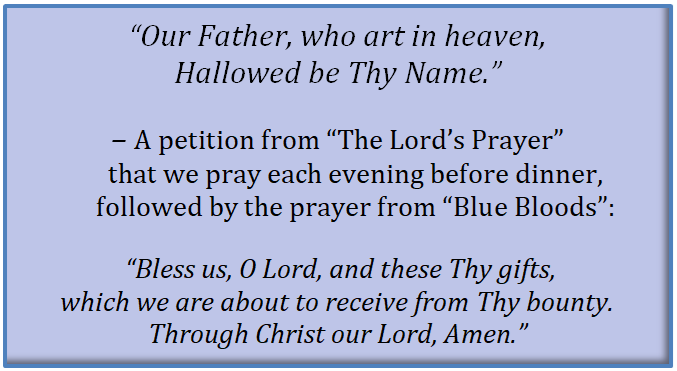
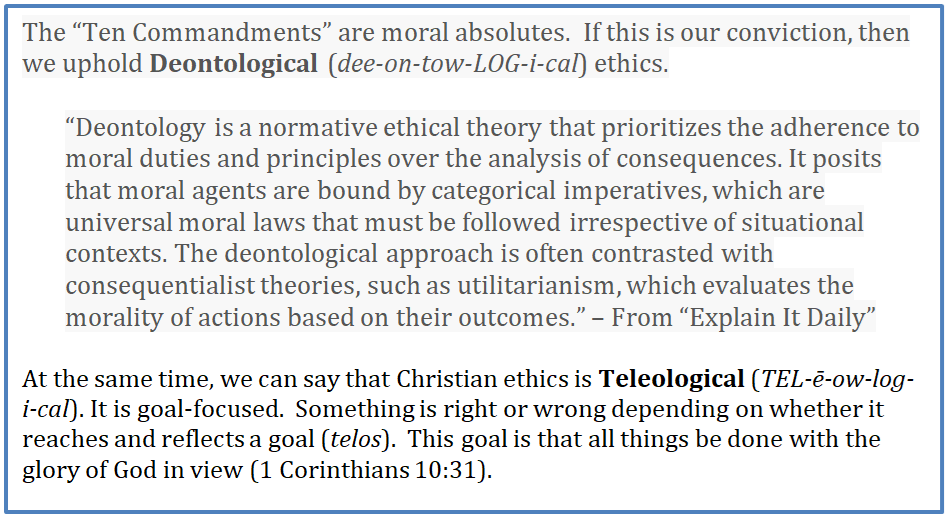













 One picture can convey what words can’t. Through Malibu along Pacific Coast Highway almost nothing remains of the lengthy row of zillionaire homes that once sat between the highway and the shoreline after the hurricane-force horizontal fires howled through in January.
One picture can convey what words can’t. Through Malibu along Pacific Coast Highway almost nothing remains of the lengthy row of zillionaire homes that once sat between the highway and the shoreline after the hurricane-force horizontal fires howled through in January.




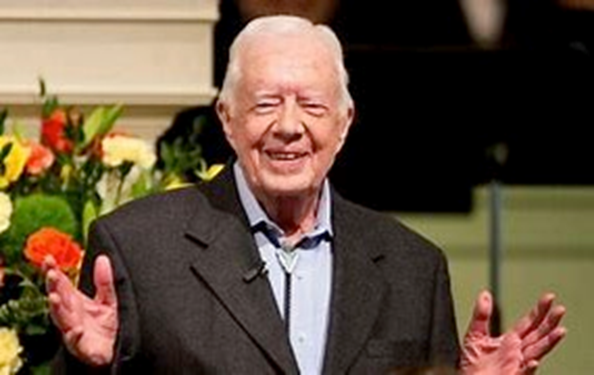


 A Thanksgiving Prayer to God…
A Thanksgiving Prayer to God… The controversy became so great that Emperor Constantine, wanting to keep peace in the empire, called for a conference in Nicaea, a city in modern-day Turkey, to deal with the problem (325 AD). Note that the Roman Empire was now led for the first time by an emperor who professed Christianity. It’s no longer Nero’s empire! And just a few years earlier Diocletian had brought the last Roman persecution against Christians. It’s hard for us to imagine political leaders in America being so concerned about doctrine as to call for a council to settle a matter. I can’t picture Gavin Newsom caring in the least!
The controversy became so great that Emperor Constantine, wanting to keep peace in the empire, called for a conference in Nicaea, a city in modern-day Turkey, to deal with the problem (325 AD). Note that the Roman Empire was now led for the first time by an emperor who professed Christianity. It’s no longer Nero’s empire! And just a few years earlier Diocletian had brought the last Roman persecution against Christians. It’s hard for us to imagine political leaders in America being so concerned about doctrine as to call for a council to settle a matter. I can’t picture Gavin Newsom caring in the least! 
 “80” on the 8th and Counting!
“80” on the 8th and Counting!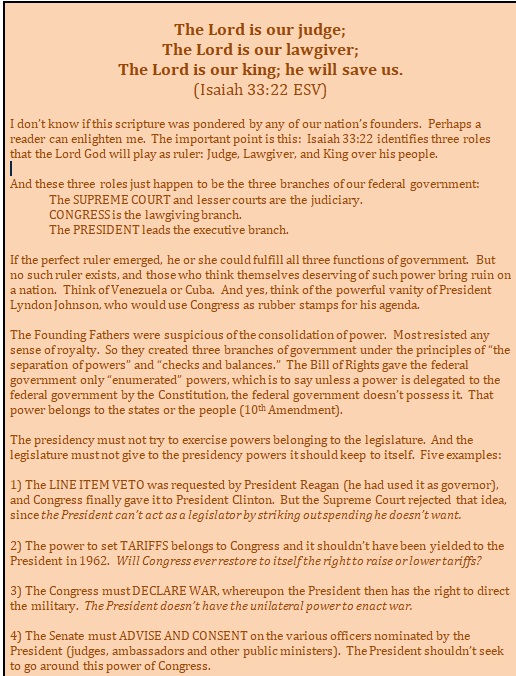

 California’s Great Seal depicts a grizzly bear, the state’s official animal. The bear is feasting on grape vines, representing California’s wine production. But 100 years ago – November, 1924 – The last sighting of a California grizzly bear was reported in Sequoia National Park.
California’s Great Seal depicts a grizzly bear, the state’s official animal. The bear is feasting on grape vines, representing California’s wine production. But 100 years ago – November, 1924 – The last sighting of a California grizzly bear was reported in Sequoia National Park.
 “Transgender Day of Remembrance”
“Transgender Day of Remembrance” November 2024 Newsletter
November 2024 Newsletter



 I thought of this scripture as the apocalyptic scenes of incredible fires appeared recently west and north of where we live in S. California.
I thought of this scripture as the apocalyptic scenes of incredible fires appeared recently west and north of where we live in S. California.




 Many evangelical churches have separated baptism from the saving confession in practice through the introduction of another “sacrament” – the “walking forward invitation” to receive Christ, followed sooner or later by baptism (hopefully) when one gets around to it.
Many evangelical churches have separated baptism from the saving confession in practice through the introduction of another “sacrament” – the “walking forward invitation” to receive Christ, followed sooner or later by baptism (hopefully) when one gets around to it.
 Leonardo da Vinci’s “The Last Supper” (c. 1495-98)
Leonardo da Vinci’s “The Last Supper” (c. 1495-98)
 “The God of wine, which is also a French jewel and father of Sequana, the Goddess linked to the River Seine. The idea was to create a big pagan party in link with the God of Mount Olympus.”
“The God of wine, which is also a French jewel and father of Sequana, the Goddess linked to the River Seine. The idea was to create a big pagan party in link with the God of Mount Olympus.” Imane Khelif of Algeria, who a year ago failed a gender eligibility test by the International Boxing Association, went on to win Gold in women’s boxing after (earlier) defeating Angela Carini of Italy who, despite her skill and physical conditioning, lasted only 46 seconds in the ring. She would later say she had never been hit so hard (in the face) as she was by a blow from Khelif.
Imane Khelif of Algeria, who a year ago failed a gender eligibility test by the International Boxing Association, went on to win Gold in women’s boxing after (earlier) defeating Angela Carini of Italy who, despite her skill and physical conditioning, lasted only 46 seconds in the ring. She would later say she had never been hit so hard (in the face) as she was by a blow from Khelif.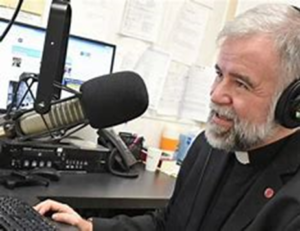 Theologian Robert McTeigue, SJ, considers the state of the contemporary church and answers…
Theologian Robert McTeigue, SJ, considers the state of the contemporary church and answers… Nickolas Kristof—“Progressive” No More
Nickolas Kristof—“Progressive” No More George Gentry—
George Gentry— A Bronze Star for Heroic Military Service
A Bronze Star for Heroic Military Service Students march and rally on Columbia University campus in support of a protest encampment supporting Palestinians, despite a 2pm deadline issued by university officials to disband or face suspension, during the ongoing conflict between Israel and the Palestinian Islamist group Hamas, in New York City, U.S.,
Students march and rally on Columbia University campus in support of a protest encampment supporting Palestinians, despite a 2pm deadline issued by university officials to disband or face suspension, during the ongoing conflict between Israel and the Palestinian Islamist group Hamas, in New York City, U.S., I believe in the Holy Spirit
I believe in the Holy Spirit An Unexpected
An Unexpected